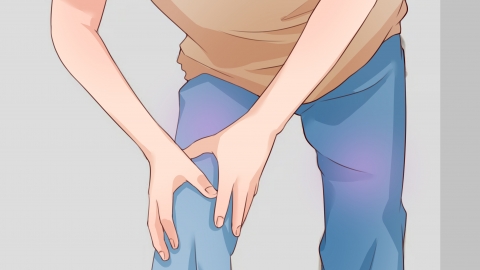Is leg soreness a sign of pregnancy?
Leg soreness is not a typical sign of pregnancy, and it cannot be used alone to determine whether someone is pregnant. Hormonal changes and weight gain during pregnancy may indirectly cause leg soreness, but it is more commonly caused by fatigue, calcium deficiency, or poor blood circulation. If you suspect pregnancy or if leg soreness persists or worsens, it is advisable to seek medical evaluation promptly.

After conception, hormonal changes in the body may lead to loosening of joints and ligaments. Combined with gradually increasing weight as pregnancy progresses, this can place added strain on the legs. Some pregnant women may experience leg soreness as a result, though this typically occurs in the second or third trimester and does not affect all pregnant women. Therefore, it should not be used as an early indicator of pregnancy.
Leg soreness is more often caused by non-pregnancy-related factors. For example, prolonged standing or walking can fatigue leg muscles; deficiencies in minerals such as calcium or potassium can impair muscle function; and extended sitting can impair lower limb circulation. Leg soreness caused by these conditions is not directly related to pregnancy and can usually be relieved through rest and nutritional supplementation.
To help prevent leg soreness, avoid maintaining the same posture for long periods. Take breaks to move your legs after prolonged sitting or standing. Soak your feet in warm water before bedtime to improve circulation. Increase dietary intake of calcium-rich foods such as milk and soy products. Engage in moderate, low-impact exercises like walking to strengthen leg muscles and alleviate discomfort.




